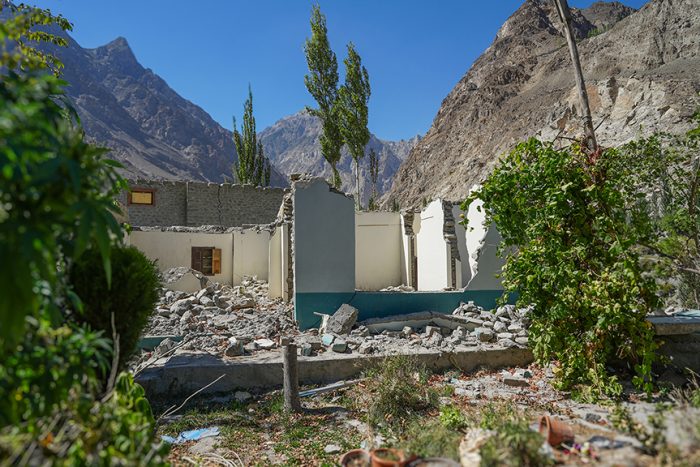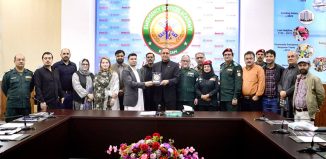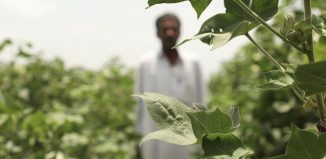Situation Report V: Floods 2025: A Humanitarian Emergency Demanding Urgent Action
Pakistan is facing one of the most catastrophic monsoon flood emergencies in recent history. Torrential rains, compounded by cross-border water releases from India, have triggered widespread riverine overflows across Punjab, while northern regions remain highly vulnerable to flash floods and landslides. As of mid-September, over 3 million people had been evacuated, with 150,000 still sheltering in evacuation centres. Though waters in Punjab have begun to recede, the scale of devastation is staggering.
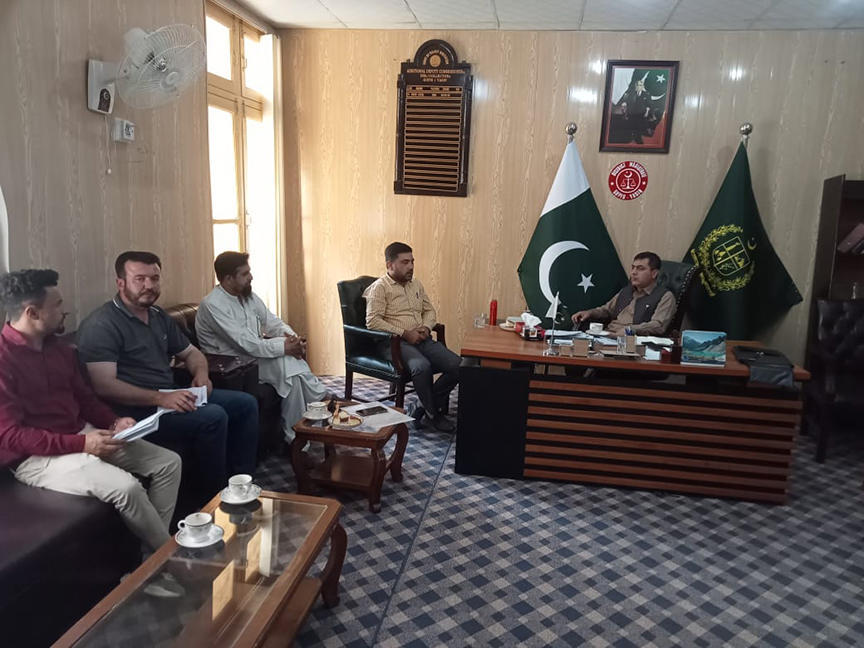
More than 2.6 million displaced people have returned to homes that are damaged or destroyed. The Punjab Disaster Management Authority reports the loss of 2.5 million acres of farmland; severely impacting wheat and cotton harvests and threatening long-term food security. Urban flooding in Karachi has compounded risks, while stagnant water in rural Punjab and Sindh is fueling outbreaks of water- and vector-borne diseases.
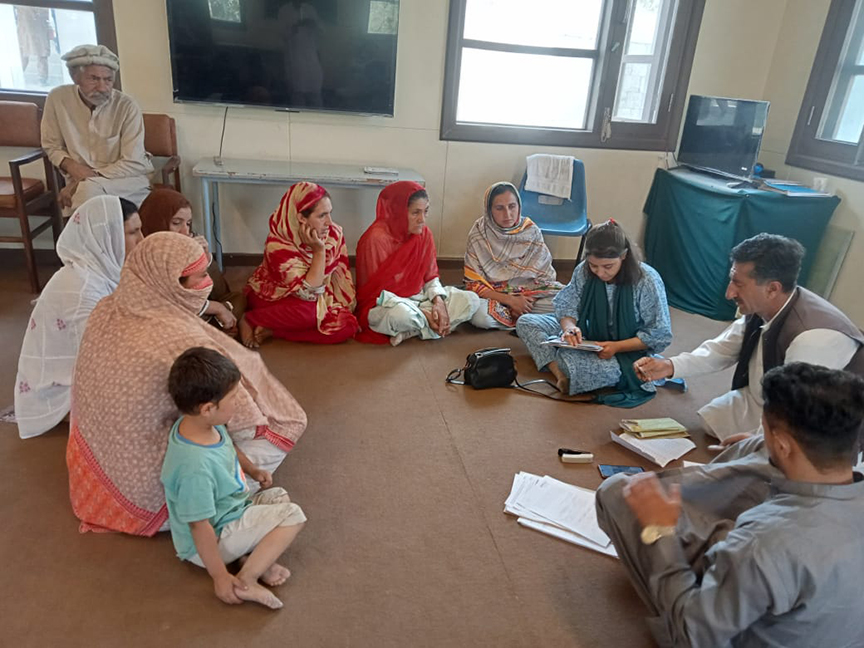
Forecasts warn of continued heavy rainfall and rising river levels in the Sutlej, Ravi, and Chenab. The National Disaster Management Authority (NDMA) has flagged heightened risks downstream, particularly in low-lying areas of Sindh. As floodwaters shift southward, the humanitarian situation remains dynamic and demands sustained, coordinated response.
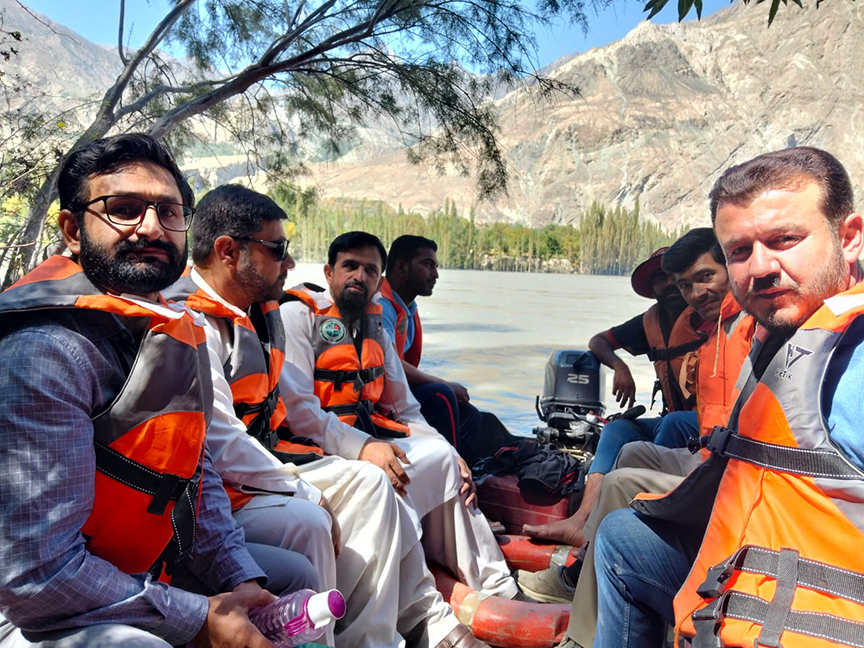
National Humanitarian Needs
- Shelter & NFIs: Over 2.6 million returnees in Punjab require emergency tents, repair kits, and winterization materials.
- WASH: Safe drinking water, sanitation facilities, hygiene kits, and disease prevention measures are urgently needed.
- Health: Mobile health services, essential medicines, and disease surveillance are critical to address rising cases of diarrhea, malaria, and dengue.
- Food Security & Livelihoods: Crop and livestock losses threaten food access and recovery, particularly in Punjab.
- Protection: Displaced women and children face heightened risks of exploitation and gender-based violence. Prolonged school closures are worsening child protection concerns.
The Asian Disaster Reduction and Response Network (ADRRN) has highlighted the urgent need to strengthen inclusive early warning and early action systems, backed by transformative investment in disaster risk reduction (DRR) to break Pakistan’s recurring cycle of flood-related loss and damage. Priority areas include:
- Community-based DRR; training local residents in search and rescue
- Forming Emergency response teams
- Building local capacity for immediate medical and psychosocial support
- Advancing locally-led climate adaptation requires complementing community knowledge with scientific and technical support to effectively address evolving risks.
Sindh Overview
Sindh province continues to be severely impacted, with intense urban flooding reported in Karachi, Hyderabad, and Mirpurkhas. The overflow of the Indus River has displaced approximately 191,500 people across 643 villages in 12 districts. Vulnerable communities residing in katcha1 areas have suffered extensive livelihood losses and significant damage to agricultural assets. Although conditions in Umerkot have now stabilized, the district endured widespread flooding throughout August and September.
| Humanitarian Needs in Sindh | |
| Health | Mobile health teams and essential medicines |
| WASH | Safe water, latrines, hygiene kits |
| Shelter/NFIs | Tents, tarpaulins, mosquito nets |
| Food Security | Dry rations and cooked meals |
| Livelihoods: | Support to restore income-generating activities |
| Protection/MHPSS | Psychosocial support and community outreach |
Gilgit-Baltistan Overview
In September, Gilgit-Baltistan was struck by Glacial Lake Outburst Floods (GLOFs) and flash floods, resulting in 41 deaths, 52 injuries, and the destruction of 1,253 homes. Infrastructure damage includes 87 bridges and 20 km of roads, with valleys such as Diamer and Ghizer cut off from relief access. Damages are estimated at PKR 20 billion.
| Humanitarian Needs in Gilgit-Baltistan |
| Shelter, clean water, food, and medical care |
| Winterisation support for displaced families |
| Strengthened health services to address disease outbreaks |
| Livelihood recovery and protection for vulnerable groups |
Community World Service Asia’s Response
Anticipatory Action in Sindh: With upstream river discharges threatening a “super flood” in Sindh, Community World Service Asia (CWSA) has activated anticipatory measures across flood-prone districts:
- Pre-positioned supplies: Lifesaving medicines, medical equipment, and hygiene kits stocked at Umerkot warehouse.
- Mobile health units: Strategically placed for rapid deployment.
- Risk communication: Disseminating early warnings, safe water guidance, evacuation protocols, and disease prevention messages in local languages.
- Coordination: Working closely with PDMA Sindh, health agencies, and cluster partners to ensure targeted, inclusive response and avoid duplication.
Additional support will be needed for winterisation, sanitation, shelter, logistics, and multipurpose cash assistance.
In Gilgit-Baltistan: In response to glacial lake outburst floods (GLOFs) and monsoon-induced landslides, Community World Service Asia (CWSA) has initiated emergency relief operations in Hunza and neighboring districts. Emergency Relief Kits have been distributed in Hunza, with preparations underway for the delivery of food supplies, non-food items (NFIs), and winterisation kits.
In Ghizer district, CWSA has established a dedicated field office, secured the necessary No Objection Certificate (NOC), recruited and oriented staff, and arranged two vehicles to facilitate field activities. Coordination meetings have been held with key stakeholders, including GBDMA, WWF-Pakistan, the Social Welfare Department, AKRSP, and the Deputy and Assistant Commissioners of Ghizer. Engagements with community organisations in flood-affected areas have also been completed.
Assessments for 240 project participants have been finalised, and data entry is currently in progress. Procurement processes have commenced following the submission of Purchase Request Forms (PRFs) and quotations for food packages. Distributions of food and multipurpose cash assistance are scheduled for October 2025.
Projected Gaps:
- Many households remain unreached due to access and resource constraints.
- Additional winterisation, sanitation, and shelter supplies are needed.
- Multipurpose cash support is critical where markets remain functional.
- Enhanced coordination with local authorities is required to facilitate last-mile delivery.
Coordination & Accountability
Community World Service Asia (CWSA) continues to work in close coordination with NDMA, PDMAs, UN agencies, humanitarian clusters, and ACT members in the country to harmonise response efforts and avoid duplication. As Co-Chair of the AAP (Accountability to Affected People) Working Group in Pakistan, CWSA places communities at the centre of the response by ensuring fair access to aid, clear and timely information in local languages, and inclusive decision-making processes and update the coordination networks accordingly. Safe, confidential feedback and complaints channels, through hotlines, community focal points, and helpdesks, are available across Sindh, Punjab, and Gilgit-Baltistan, enabling people to voice concerns and shape the response. Special efforts are made to reach women, children, persons with disabilities, and minority groups, while disaggregated data helps track who is reached and address risks of exclusion. Communities are also informed about the type, quantity, and timing of assistance, strengthening transparency and trust. These accountability measures are not add-ons but an integral part of CWSA’s principled humanitarian action, ensuring that relief is both effective and dignified.
Urgent Funding Priorities:
- Expand anticipatory action in Sindh with rapid deployment capacity and community communication.
- Scale up winterisation, shelter, and cash support in Gilgit-Baltistan based on community-identified needs.
- Strengthen logistics and last-mile transport to reach high-risk, remote communities.
Community World Service Asia remains committed to delivering principled, inclusive, and locally led humanitarian assistance. As the situation evolves, we call on partners, donors, and humanitarian actors to join us in scaling up coordinated response efforts and investing in long-term resilience across Pakistan.
Contacts:
Shama Mall
Deputy Regional Director
Programs & Organisational Development
Email: shama.mall@communityworldservice.asia
Tele: 92-21-34390541-4
Palwashay Arbab
Head of Communication
Email: palwashay.arbab@communityworldservice.asia
Tele: 92-21-34390541-4
References
- UNOCHA Flash Update #10, 19 Sept 2025
- PDMA Punjab Situation Reports
- NDMA National Updates
- ADRRN Regional Advisory, Sept 2025
- PDMA Sindh Flood Update, Sept 2025
- District Administration Umerkot Updates, Sept 2025
- GB Government & NDMA Situation Updates, Sept 2025
- Pakistan Red Crescent Reports, Sept 2025
- Informal settlements ↩︎





